What is Shaded Pole Induction Motor:
Shaded pole induction motor is nothing but a self-starting single phase motor whose main pole is shaded by the auxiliary winding or an external winding. This external winding is called a shaded coil or shaded band.
The external winding does not have electrical contact with the input power supply.
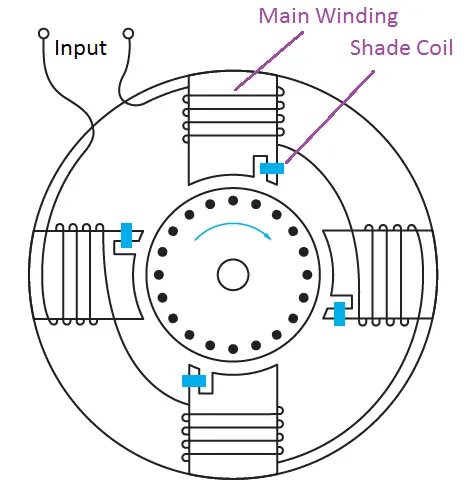
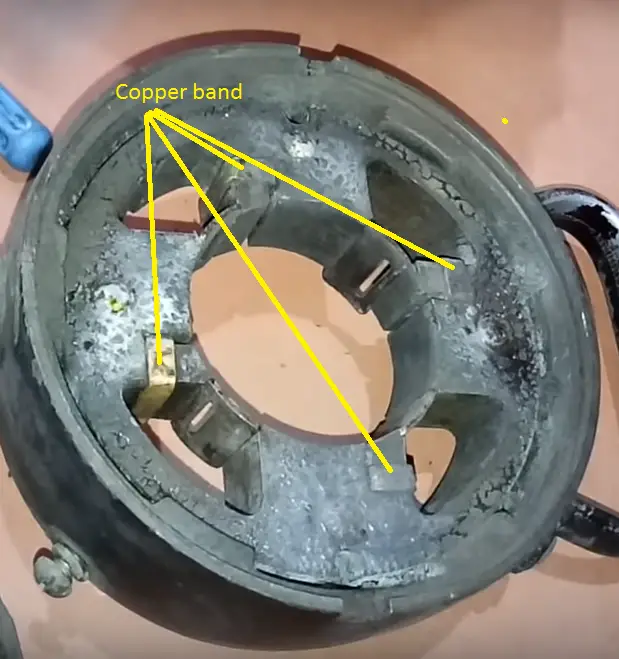
Stator:
Stator, the stationary part which carries the main winding and shaded winding of the motor. characteristics
The stator poles are projected i.e salient pole. Mostly it will be designed with two or four poles as per the speed requirements. Designing a higher number of the pole, increase the complexity of the motor.
Copper band:
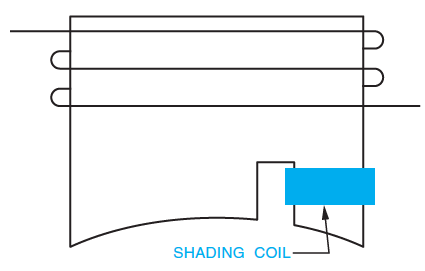
One portion of each main pole typically 1/3rd will be surrounded by a low resistance copper band. It called a shade band or shaded coil. Both ends of the copper band will be shorted to form a closed circuit. It acts as a transformer secondary winding. The individual pole has own shade band as shown in figure 1.0.
Rotor:
The construction of the rotor is the same as the normal single-phase induction motor. The rotor is skewed by 60 deg to reduce the magnetic locking.
In order to increase the starting torque of the motor, the rotor is designed with V type skewing. V-skewing is costlier, but they have a better way to reduce the magnetic locking between the rotor and starter.
Working of Shaded Pole Motor:
The working principle of shaded pole induction motor is simple, the main winding carries alternating current and produces magnetic flux in the stator coil.
The same magnetic flux cut by the copper shaded band. Due to this, the emf will be induced in the copper band. This emf circulates the current. This current produces own magnetic flux in the shaded band.
Apply lenses Law, the flux in the shade band opposes the main stator flux. It causes a slight magnetic imbalance and generates a rotating magnetic field.
For better understanding, let we take a simple half-wave of an alternating current with single-pole such as,
- 0 to 90 deg – magnitude rising portion
- 90 deg – At the peak
- 90 to 0 deg => magnitude lowering portion.
At 0 to 90 deg:
The alternating current rising with respect to time, the flux will be produced in the main winding and the same will be cut by the copper band.
Hence the emf is induced and the same circulates high amount of current in the copper band. The circulating current in the copper band creates the magnetic field. This magnetic field opposes the main field.
Hence the magnetic flux and the non-shaded area is higher than the magnetic at the shaded area. Therefore, the rotor does not link the main flux at the shaded region.
The Concentration of main flux > the concentration of shade band flux
At 90deg Peak:
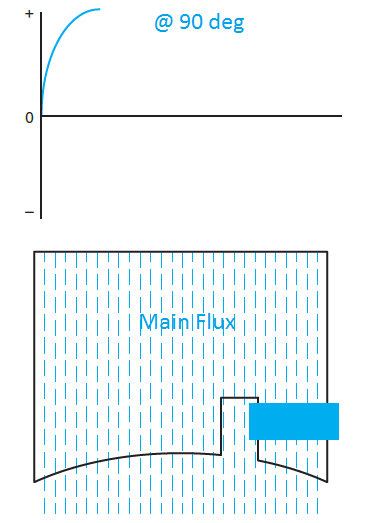
At 90 deg peak, there is no rate of change of flux. It is just like DC voltage (constant). Hence the emf is produced in the copper band is zero. Hence, there is no flux.
All the flux generated in the main winding will be uniform and links with the rotor.
The Concentration of main flux > the concentration of shade band flux (0)
At 90 to 0 deg:
In this, the AC starts to decrease from peak to zero, hence The main flux starts decreasing, again hence the larger current will be produced in the shaded ring as the coils have low resistance short-circuited.
The current produced in the coil opposes the main decreasing flux. This causes the magnetic flux to be concentrated in the shaded section of the pole piece.
The Concentration of main flux < the concentration of shade band flux
The same will be continued at the negative half cycle also except that the polarity of the magnetic field is reversed.
Note that, all the above instant will happen within 20mA sec, it could be seen that the magnetic field rotates across the face of the pole piece from one end to another end.
How to change the direction of shaded Pole motor:
The direction of the shaded pole motor will be from unshaded portion to shaded portion. i.e Refer to picture 1.0, in this the direction will be clockwise.
We cannot change the direction of the motor electrically.
But we can change the direction of the motor by reversing the shade pole position. By tilting 180deg, of the main pole winding. By the way, we can change the position from right to left.
Also the above method is applicable only for the two-pole stator. But for 4 pole stator, the change of speed is very difficult.
Video demonstration for changing the direction of the shaded pole motor:
Advantages and disadvantages:
Such a poor starting motor is having the following advantages and disadvantages:
Advantages:
- Simplest construction, no need for capacitor or centrifugal switch.
- Long life
- Less starting current and it does not cause a voltage drop across the nearest feeder.
- Easy to rewind and maintenance-free motors.
- It does not require any special starting methods.
Disadvantages:
- Low starting torque and it is not suitable for high starting torque application
- Reversing is not possible.
- Poor power factor at starting
- Low efficiency
Power rating:
The shaded pole motor has poor starting torque & the starting power factor is very low. Hence the motor gives us low efficiency for higher power rating design. That’s why the motor is designed with a low power rating typically 1/20 HP.
Applications: Hot air blower, shower motor, small DVD player, etc.

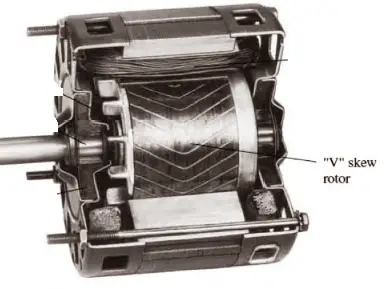
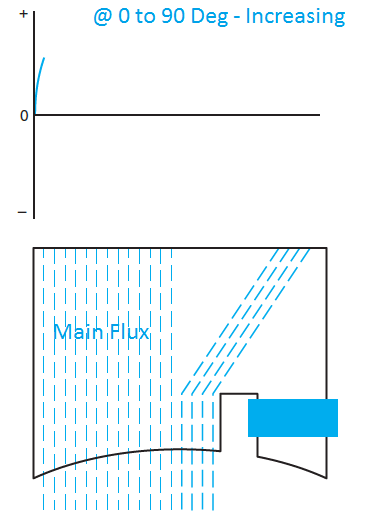
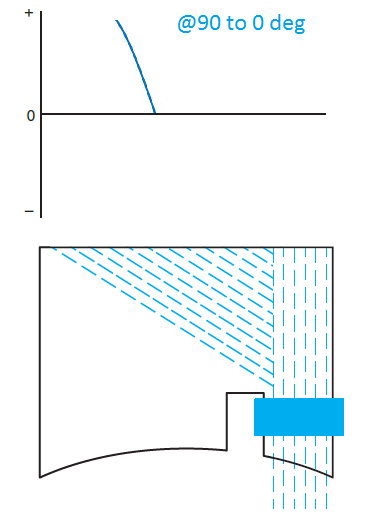


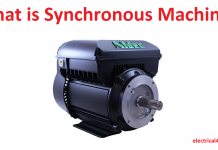
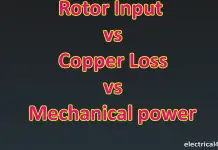
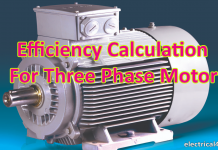
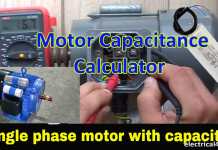
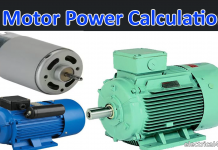
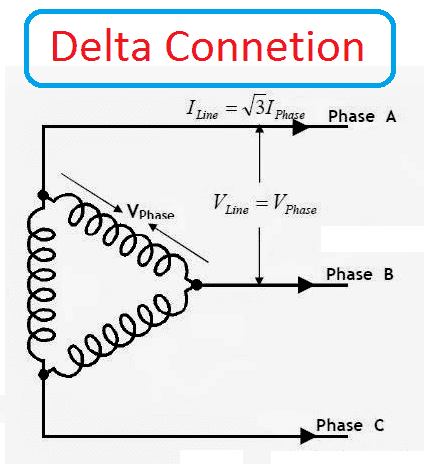
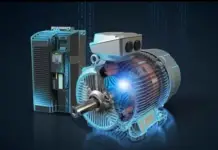
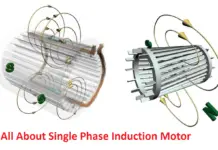


how do you determine the winding on a 4 coil westinghouse LA 12 electric fan motor and wire size?
Regards,
Jerry Wilson